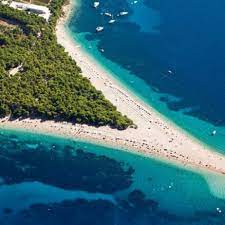Cape Verde (Cabo Verde)
Cape Verde (or Cabo Verde) is a horseshoe-shaped archipelago made of ten volcanic islands located in the central Atlantic Ocean, off the Senegalese coasts. Don’t be fooled by the small size and the isolation of the country… The traveler will find in Cape Verde gorgeous green valleys with a lush vegetation, spectacular high peaks, sugarcane fields landscapes, unspoiled beaches, magnificent diving sites and untouched patches of wild nature making him feel he has reached the ends of the Earth. Cape Verde has also nice lively cities and a rich cultural blend of African, European and Latin American traditions.
HEALTH INFORMATION
Risk of Zika in this Country. Learn More >>
We make every effort to ensure that the information posted on our website is up to date and accurate according to the latest public health recommendations; however, it is impossible for us to make changes on a daily basis.
For the most current travel health recommendations, please call our clinic as make an appointment with one of our travel health professionals.
CAPE VERDE (CABO VERDE) – RECOMMENDED VACCINES
| The Yellow Fever Vaccine | A proof of vaccination against yellow fever may be required upon entry in to this country. Some travellers may not be eligible to receive this vaccine. Please enquire with your health care professional regarding your specific details. It is important to note that the vaccine should be administered at least 10 days prior to your departure. For further information, please consult with the World Health Organization (WHO) website: https://www.who.int/ith/ith- |
| Hepatitis A | Recommended for all travelers. |
| Hepatitis B | Recommended for all travelers. |
| Causes, Symptoms & Treatment – Typhoid fever | Recommended for all travelers. |
| Tetanus – Diphteria – Pertussis Vaccine | Tetanus: In exceptional circumstances (eg, stay in a region where access to health care is limited), for a person aged 18 years or older, 1 dose of DT may be given if 5 years or more has elapsed since the last dose. Otherwise, one booster dose at the age of 50*. Pertussis (Whooping Cough): 1 dose is recommended for pregnant women, for every pregnancy, regardless of immunization history and the interval since the last dose (betwen week 26 and 32). *Only applicable for Quebec. |
| Measles – Rubella – Mumps | Two doses recommended for all travelers born after 1970, if not previously given. |
| Transmission, Symptoms and Prevention – Rabies | For travelers at high risk of animal bites or being involved in activities with bats. Clients who plan to visit remote areas may consider receiving this vaccine. Important to note the pre-exposure rabies vaccine is administered in 2 doses with one week interval between doses. Post-exposure vaccination is always recommended, even for those previously vaccinated. |
| Flu – Influenza | Seasonal influenza occurs worldwide. The flu season usually runs from November to April in the northern hemisphere, between April and October in the southern hemisphere and year round in the tropics. Influenza (flu) is caused by a virus spread from person to person through coughing and sneezing or by touching infected surfaces. Everyone 6 months and older should get a flu vaccine yearly. Vaccine is recommended 14 days prior to departure. |
| Routine vaccines (dCaT, Polio, Meningococcal, Shingles, Pneumococcal, Hepatitis B, HPV, MMR & Varicella) | Recommended for all travelers |
| African Tick Bite Fever | Presence. All travellers should protect themselves against tick bites. |
| Cholera | Vaccine recommended for persons traveling to an area of active transmission. Most people do not travel to areas of active cholera transmission. |
| Turista – Traveler’s Diarrhea (ETEC) | Talk to your health care professional about the risks and precautionary measures to take, as well as the Dukoral® vaccine. Important to note that the Dukoral vaccine is an oral vaccine given in 2 doses, recommended at least 2 weeks prior to departure. |
| Malaria | Malaria is present in this country. The risk may be region specific. Prophylaxis measures to be discussed with the health care professional. |
| Dengue Fever, Chikungunya and/or Zika | There are many illnesses that are transmitted via mosquito bites and unfortunately we do not have vaccines to protect us against most of them. It is important to inquire with your healthcare professional regarding the specific risks and the different illnesses presently in circulation. |
RECOMMENDED MEDICATIONS
| Antimalarials Recommended | Malarone, Doxycycline or Mefloquine |
| Antibiotics Traveler’s Diarrhea | Azithromycin or Suprax |
MEDICAL CARE
Medical care in Cape Verde is of low quality. The local population doesn’t have access to satisfying basic health care. With insufficient medical facilities, frequent shortages of essential medicines and untrained medical professionals, Cape Verde is able to provide neither good medical care nor quality emergency services. Outside of Praia, the capital, it is very hard to find acceptable medical care. It is good to know that Sao Vicente has a large hospital, as well as medical centers and medical units, featuring maternal infant and family planning programs. But the care provided is always of poor quality. In case of serious disease or injury, an air evacuation is required.
To contact emergency services in Cape Verde, call 130.
Access to medicines is poor in the country. Be sure to bring you own medical supplies in sufficient quantities.
SECURITY ABROAD
The following criminal activity occurs:
CANADIAN EMBASSY
Emergency services
In case of emergency, dial:
- police: 132
- medical assistance: 130
- firefighters: 131

